Cult classic Amar Akbar Anthony is always included in the lists of greatest Bollywood films of all time. The highest-grossing Hindi movie of 1977 had a star-studded cast, memorable music, magical moments, and a legendary story of three brothers, brought up in different faiths after being separated as children.
The Manmohan Desai-directed entertainer, which was released on May 27, 1977, marks its 46th anniversary this week, and to celebrate, Eastern Eye decided to share 46 fun facts connected to it.
- Desai was inspired to write the story of Amar Akbar Anthony after seeing a newspaper article about an alcoholic man named Jackson abandoning his children in a park.
- After just directing films for a long time, this was the first film Desai made as an independent producer.
- This was the first film Desai and Amitabh Bachchan officially signed together. They would become a dream team and deliver multiple hits.
- Bachchan was hesitant about acting in the film, but Desai convinced him otherwise by saying, “after the release you will be known as Anthony Bhai”, and that is exactly what happened, as it became one of his career-defining roles.
- Dharmendra had turned down Vinod Khanna’s role due to a busy schedule, but still supported the movie and sounded the opening clapperboard at its launch in June 1975.
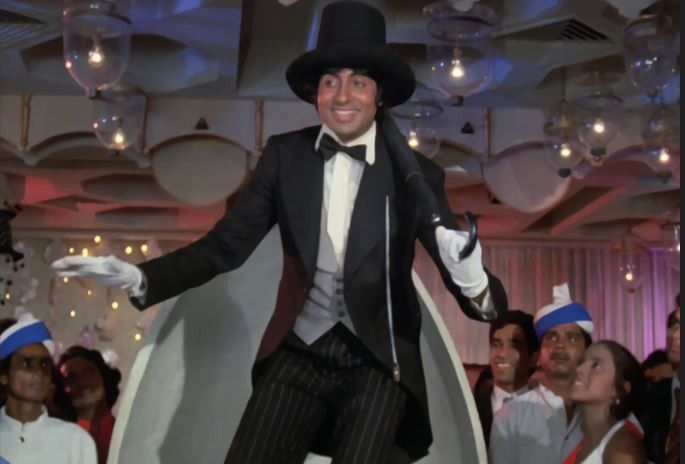
- Zeenat Aman was first offered Parveen Babi’s role in the blockbuster hit while shooting for Dharam Veer (1977) with Desai but turned it down. She later regretted that decision.
- There originally wasn’t going to be a heroine opposite Khanna, but he insisted because his fellow leads had love interests and Shabana Azmi was signed.
- Even though Khanna plays Bachchan’s elder brother in the movie, in real life he was four years younger than him.
- The original name of Bachchan’s character was Anthony Fernandes. It was changed by music directors Laxmikant-Pyarelal and named Anthony Gonsalves, after their music teacher.
- The villain role played by Yusuf Khan was named after professional wrestler Stanislaus Zbyszko. Later pro wrestling legend Larry Zbyszko also adopted that same name.
- Parts of the nonsensical musical monologue preceding the film’s song My Name Is Anthony Gonsalves were taken from an 1878 speech by British politician Benjamin Disraeli.
- The movie’s song Humko Tumse Ho Gaya Hai is the only one in the history of Bollywood to feature the voices of legendary singers Lata Mangeshkar, Kishore Kumar, Mohammad Rafi, and Mukesh together.
- The one line given to Bachchan’s character in the Parda Hai Parda song was supposed to be sung by Kishore Kumar, but he deliberately charged a high fee as he didn’t want to do it. His son Amit Kumar sang it instead but he was not credited.
- The clothes worn by Rishi Kapoor’s character were purchased from the famous Linking Road in Mumbai.
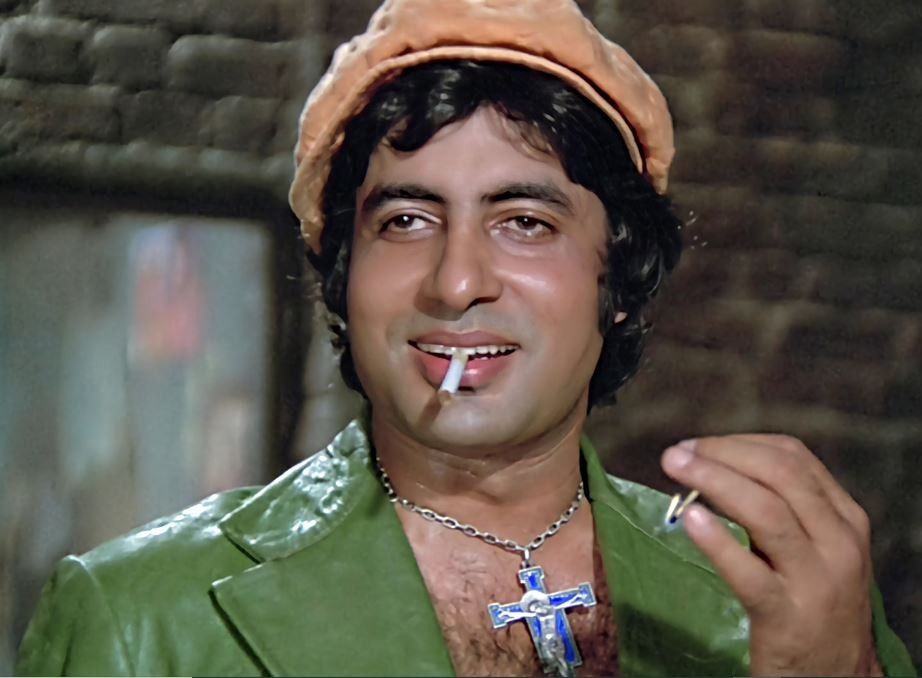
- The colourful vests and metal crosses worn by Bachchan became a fashion trend after the film was released.
- Neetu Singh plays a character named Dr Salma. A blooper in the movie saw Kapoor calling Neetu by her real name, instead of Salma. (It was actually noticed in the first cut, but deliberately kept in).
- A subtle mistake that goes unnoticed is Parveen Babi telling Pran on the phone his son who was lost 25 years previously had been found, when the separation time in the movie is 22 years.
- Another famous blooper in the film is Bachchan’s bruises disappearing from his face after the jail scene, during his first encounter with Pran, and then reappearing when he returns to the police station.
- The mirror scene where Bachchan’s intoxicated character is speaking to himself was improvised, without the director present. Desai was so impressed that he vowed to only work with him after that.
- Talking of that unforgettable mirror scene, Desai was shooting the climax of Bachchan starrer Parvarish (1977) on another floor of the studio, at the same time.
- There were striking similarities between the famous scene where Nirupa Roy regains her sight through divine intervention and one in National award-winning Punjabi film Nanak Naam Jahaz Hai (1969), where a blind character receives a holy light from the Golden Temple and can see again.
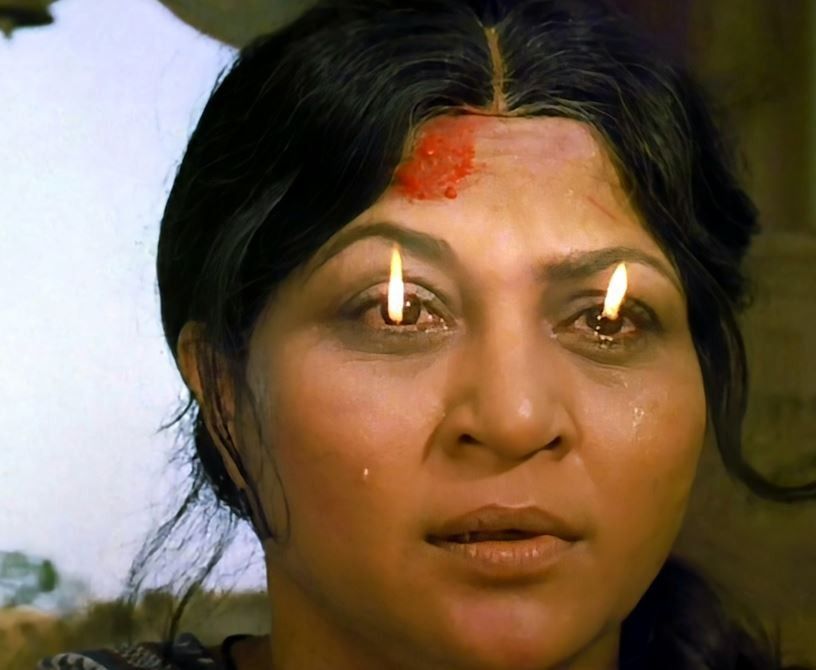
- Bachchan thought Desai was crazy for creating a hospital scene where all three brothers give blood to their mother at the same time, as it’s a medical impossibility. Desai’s vision paid off and it became a symbol of communal harmony.
- The yellow Volkswagen Beetle in which Parveen Babi’s character arrives at the church belonged to Yusuf Khan, who played her bodyguard in the scene.
- Khanna explained that although Bachchan had a bigger role, the reasoning behind him winning their onscreen fight was that he played the elder brother.
- Erasers with the images of lead stars Khanna, Kapoor, and Bachchan were sold to students to promote the movie.
- The superhit film ran for 25 weeks in 25 theatres in Mumbai. If inflation is taken into account, it remains one of the highest-grossing Hindi movies in history.
- Even though it was his biggest box office hit, Desai didn’t regard Amar Akbar Anthony as his best work and called its success a fluke. He believed Naseeb (1981) was far superior.
- Bachchan finally received his first Filmfare Best Actor award for the movie.
- The emergency period in India caused many delays, which meant Desai had four films – Parvarish, Dharam Veer, Chacha Bhatija and the top grosser Amar Akbar Anthony – released in 1977.
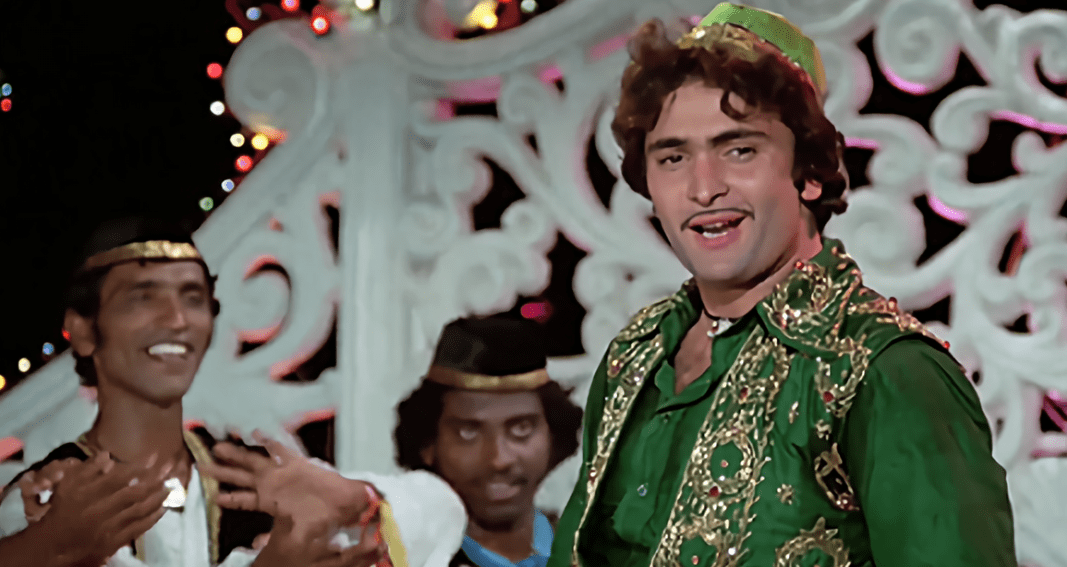
Rishi Kapoor - The movie was a huge hit across the West Indies and turned Bachchan into a big star in the Caribbean islands.
- Amar Akbar Anthony was officially remade in Tamil as Shankar Salim Simon (1978), in Telugu as Ram Robert Rahim (1980) and in Malayalam as John Jaffer Janardhanan (1982).
- Meanwhile, in Pakistan, the film was unofficially remade in Punjabi as Akbar Amar Anthony (1978).
- Sohail Khan had wanted to remake the film with him and his brothers Salman, and Arbaaz in the title roles. However, it was shelved for unknown reasons.
- Even though they had great chemistry in the movie, Desai never romantically paired Bachchan and Babi again. Both were cast in his films Suhaag (1979) and Desh Premee (1982), but not as romantic interests.
- Director Desai had wanted to repeat the male cast members for his film Naseeb, but Vinod Khanna had quit Bollywood and was replaced by Shatrughan Sinha. Desai also wanted to repeat the casting of Parveen Babi and Neetu Singh, but both had stepped back from Hindi cinema for different reasons.
- Bachchan starrer Andhaa Kanoon (1983) featured three villains named Amar, Akbar, and Anthony, as a tribute to the film.
- Desai’s movie Mard (1985) also pays homage to Amar Akbar Anthony with Bachchan’s character in disguise again as Father Anthony, and through a similar mirror scene.
- There was a spoof of the finale song Anhoni Ko Honi Karde in Eena Meena Deeka (1994), featuring original stars Vinod Khanna and Rishi Kapoor with Juhi Chawla.
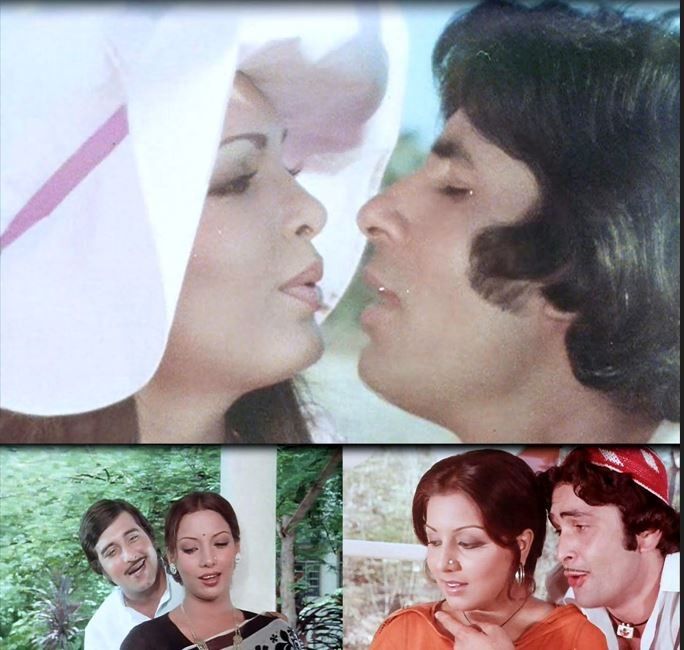
Amitabh Bachchan and Parveen Babi (top), Vinod Khanna and Shabana Azmi (left), Rishi Kapoor and Neetu Singh (right) - There is a book titled Amar Akbar Anthony written by Sidharth Bhatia, which is a tribute to the iconic movie.
- The 2013 gangster film Once Upon A Time in Mumbai Dobaara had a cover version of Amar Akbar Anthony song Tayyab Ali.
- The 2013 film Bol Bachchan contains a homage to My Name Is Anthony Gonsalves, with Amitabh Bachchan making an entry out of an Easter egg and delivering a similar nonsensical monologue.
- There was a suggestion of remaking the movie with the lead stars’ actor sons Ranbir Kapoor, Abhishek Bachchan, and Akshaye Khanna. But Ranbir said he would only do it if he could play the role of Anthony.
- Shah Rukh Khan paid tribute to the film in Om Shanti Om by wearing a pendant representing all three faiths.
- The title of British film Amar Akbar & Tony (2015) was inspired by the classic.
- A viral 2022 meme compared Hindu UK prime minister Rishi Sunak, Muslim London mayor Sadiq Khan, and Christian King Charles, to Amar Akbar Anthony.
- During a press conference for 2023 blockbuster hit Pathaan, Shah Rukh Khan referred to Deepika as Amar, himself as Akbar, and John Abraham as Anthony, in a sincere effort to promote unity in the industry and with audiences. The majestic movie remains a classic that has united Bollywood 46 years after its release, and we celebrate it.
